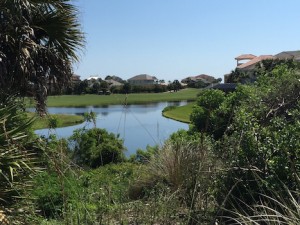OK You Retirement Experts, How Well Are You Doing with Your Own Retirement?
Category: Retirement Planning
April 2, 2015 —
By Jan Cullinane and John Brady
Retirement advice is not hard to come by – it seems like every website and newspaper will tell you how to do it. So we were intrigued when our frequent contributor, Jan Cullinane, suggested a different approach. Her idea was to ask a half dozen retirement gurus to describe their personal retirement plans and rate how well they followed their own advice. We think you will enjoy learning how they went about finding a great place to retire…where they decided to live… the areas where they think they planned well….and even where some felt they didn’t merit an A – in their own class! Note that due to the length of the various responses we have divided this into three articles. This is the Summary. Part 1 answers the first few questions, and Part 2 gives the rest of the answers.
Our retirement experts:
Thanks to the efforts of Jan Cullinane we are pleased to have the collective expertise of six leading U.S. retirement experts for this article. Their detailed biographies are at the end of this article, but here is a thumbnail sketch of each of our gurus.
Dr. Ron Manheimer retired in 2009 from his position as the founding director of the award-winning North Carolina Center for Creative Retirement (now an Osher Lifelong Learning Institute) at the University of North Carolina at Asheville. Ron’s current book is Mirrors of the Mind: Reflecting on Philosophers’ Autobiographies (Jorvik Press).
Ernie Zelinski is a best-selling author, prosperity life coach, innovator, professional speaker, and unconventional career expert. How to Retire Happy, Wild, and Free (Visions InternationalPublishing) is a perennial best-seller.
Jan Cullinane is an award-winning author, speaker, and consultant. Jan’s current book is The Single Woman’s Guide to Retirement (Wiley).
Kerry Hannon is a nationally recognized authority on career transitions and retirement and a frequent TV and radio commentator. Her most recent book is Love Your Job: The New Rules for Career Happiness (Wiley).
Carol White retired after a long career in sales and marketing. She embarked on a yearlong trip around the United States that spawned her second career and her award-winning book, Live Your Road Trip Dream.
John Brady created Topretirements.com in 2006 after retiring as co-owner and Executive Vice President of Business & Legal Reports, Inc.
The experts’ retirement plans are not that different – with one big exception
Our experts’ retirement plans seem quite representative of the baby boomer population at large. Some are snowbirds or have a weekend home, while others own one home. The reasons they cite for choosing a place to live are not unique. Likewise their thoughts about aging in place and most other retirement issues are similar to those of the general population. The big exception is when it comes to planning – our six experts have spent more time thinking about, planning, and exploring retirement options than is usual. An interesting observation is that even with all of this collective planning, a third of our experts think they could have done a better job. Note that most are still working in some capacity, but because they work for themselves, they are not tied to a specific location.
Our questionnaire included some general questions about their retirement plans, a self-evaluation on how well they did in terms of heeding their own advice, and parting advice for how anyone could better prepare for his/her retirement. Here are the questions and a brief summary of their answers:
1. Where do you live, and why did you choose it
This was the first question we asked and it generated a range of answers. You can see their detailed responses on where they live with the reasons for selecting them in Part 1. Categorizing the six ‘where to live’ decisions looks like this:
– Two have retired to one place year round (Asheville, NC and Palm Coast, FL)
– Two are snowbirds (Madison CT and Key West FL, Bend OR and Sun City Grand AZ)
– Two live in two different places throughout the year (summer city of Edmonton and winter city of Vancouver Canada, weekday Washington DC and weekends Boston, VA)


Within the group one expert lives in an active adult community (Sun City Grand, Arizona), and one lives in a master planned community (Hammock Beach in Palm Coast, FL). Five out of the six continue to live at least part of the year in the community where they last worked. This is pretty consistent with the experience of the general retired population; most retirees do not move far away from where they lived prior to retirement. Our expert population is, however, more likely to live in two or more places than most other retirees.
2. What they like, and don’t like about their retirement choices
This is a summary of the individual responses, much more detail is provided in Part 1:
Pros: It’s no surprise that the reasons our experts gave for liking where they live are consistent with the mainstream. The wide range of those reasons also highlights just how individual the preferences are for a retirement location – making generalizations difficult. In fact, a positive for one person can be a negative for another! Here is a summary of the main reasons given for selecting a place to retire:
– Location, views, weather, four seasons, warm winters, small town feel, out of the rat race, nearby ocean, recreation, outdoor activities and vibe, tax friendly, good hospitals and medical services, year round cultural events, can bike or walk anywhere, reasonable housing prices, restaurant choices, amenities, easy to meet people, close to family, peace and quiet, lifelong learning, college town, golf and tennis.
Cons: The things our panel found they didn’t like about their retirement choices will sound familiar to most people.
– Expensive housing, political environment, crowded downtown, limited airline connections, miserable winters, lack of shopping, too far from family, lack of housing and employment possibilities, community is too spread out.

3. Surprises!
Even with the best of planning our experts usually had at least one unpleasant surprise about their retirement choice. Here we used their actual words to describe the surprises:
– “I underestimated how difficult it would be to find that new group of close friends. You just can’t replace that in a matter of a few months. Nothing like old friends!”
– “Having to take a helicopter to Miami for major medical events”
– “I was surprised at the number of doctors who would not take people on Medicare unless they had been patients prior to going on Medicare”
4. How do you plan to deal with aging issues – long-term care insurance, self-insurance, live forever?
Not surprisingly, all of the six experts hope to live a long time. Two of them have purchased long term care insurance, and one of those also has an annuity earmarked for that purpose. The other four plan on self-insurance for long term care (which seems to be what most people plan on doing). Almost all mentioned that they are trying to pursue a healthy lifestyle – exercising, eating/drinking in moderation, regular doctor visits, having close friends, etc.
Jan Cullinane mentioned that her home has universal design elements that should allow her to stay there longer and more comfortably as she ages. Ron Manheimer and wife purchased a downtown condo that could serve as a possible downsizing next move.
5. How good of a job do you think you’ve done following your own expert advice in determining where you live?
Generally the six are content with how well they have followed their own advice. But as you can see, a few mention that there is room for improvement, even with the best of planning.
Manheimer (who retired in place in Asheville): “Maybe my strongest asset was to recognize that the grass was getting greener right under my feet and that I could do my part in helping it to grow.”

Zelinski (Edmonton and Vancouver, Canada): “I think that I am doing a great job in managing to live in a fairly affordable place where most of my friends live. But I am also doing a great job in traveling a lot in winter and staying for a week or so in (interesting) places.”
Cullinane: “Well, in some respects I followed my own advice: I suggest people have a list of what I call “non-negotiables” when deciding where to live, and I did use this list when deciding to move to Hammock Beach. BUT, I also suggest people try a place out in all seasons, and rent to be sure it’s the right move. Nope. Bought a lot the day I visited the place, and although I didn’t build on it for several years, I never did change my mind. So, I’m kind of in the middle.”
Hannon and her husband are a little younger than the rest. But she sees issues ahead “…a compromise about where we will ultimately live in our 70s and 80s …and more will be revealed.”
White: “As we’ve made major moves (in the past few years) we have done a lot of research, been fiscally prudent in our decisions, yet planned for those experiences that we wanted in our lifestyle. If you remain open to the possibilities and don’t put self-limiting ideas in your head, you have a much better chance of being happy.”
Brady: “We are doing well but haven’t followed my own advice 100%. For our main residence in Key West we did a pretty good job of scouting out locations and renting before buying. We picked a town where we can continue to work and where we can do the things we like to do. Where we are going to have trouble is when it comes to trying to choose one retirement location for the rest of our lives. If and when we hit our 80s, or we are unlucky enough to experience ill-health, that might force a move.”
6. If you were to give people one piece of advice about choosing a place to retire, and having a successful retirement what would it be? We just love the different slants recommended in these selective samples – see the entire article for even more. Note one caveat: retirement means different things to different people. It can mean never working again; it can mean owning your own business, it can mean working part-time. It’s a very personal thing.
Manheimer encourages people considering relocating to undertake a trial period in a potential new community either by renting for six months to a year, or at least make periodic week-long visits in different seasons to reality test one’s dream. Each of us brings our same baggage to a new destination. We won’t be any different unless we also have a plan to make our lives different.
Zelinski‘s advice would be to choose a place where you can have the most fun with your friends. Studies show that the people who have the most friends in their later years are the happiest and live the longest.
Cullinane: Come up with a list of non-negotiables that you (and your significant other if you have one) must have. There are many places that will work, including, possibly, staying put. But, don’t stay put just because it’s easier, and then be forced into a change because of outside circumstances. We only live twice, and the second time is during retirement, when we are given the gift of time. Retirement is as unique as you are.
Hannon: Look for great public transportation, a home with a master bedroom on the main floor – watch out for stairs! Save, save, save, downsize your lifestyle as early as you can, so you are financially fit and nimble and you have choices. Plan to work in some fashion. For pay is always best. Smile.
White: List all the things that are important to you, rank them, then use that list as a guide to evaluate your various options. If you aren’t really analytical, then go with your heart (and wallet), but make sure it is something that will feed your soul.

Brady: Give yourself a lot of time to explore many places. Rent for awhile. Ideally pick an area where you can stay for the rest of your life, one that provides the option to move to different kinds of housing as you age and your needs change.
7. Anything else we should know?
We are glad that our experts couldn’t resist a parting piece of advice:
– In your search for Shangri-La, don’t overlook the possibility that paradise may be where you are right now. There is some truth to the words of Henry Ford: “Everybody wants to be someplace he ain’t. As soon as he gets there, he wants to go right back.”
-Don’t be afraid to dream big. Nothing really exciting ever happens by playing it “safe.” Sometimes you just have to set an audacious goal and work towards it, even if it seems improbable at the start.
– Enjoy the process – it is a lot of fun and a chance to reinvent the rest of your life.
Bottom Line
There are several things we can learn from these retirement experts. Their experiences reinforce how true it is that retirement is different for everyone – there are so many different dreams. Having a plan gives you a much better chance of finding happiness. Don’t expect that your first plan will be perfect, so be willing to be flexible and learn. Sometimes the place you live now is the best. Finally, be willing to dream big and take a chance – this is your second chance on life!
For further reading:
Part 1 – the detailed answers to questions 1 and 2, where do you live and why
Part 2 – answers to questions 3-6 about aging, how well the experts followed their own advice, etc.
Comments? What do you think – did you learn anything new from these experiences? Any points where you felt the experts were off base, or especially apt. How does your planning process compare? Please share your thoughts and dreams in the Comments section below.
Meet the Experts
Ron Manheimer retired in 2009 from his position as the founding director of the award-winning North Carolina Center for Creative Retirement (now an Osher Lifelong Learning Institute) at the University of North Carolina at Asheville. An expert on trends influencing the many ways people are reinventing retirement, Ron brings a Ph.D background in philosophy and gerontology to his current career as speaker, consultant, and writer. His many published books include A Map to the End of Time: Wayfarings with Friends and Philosophers. W. W. Norton). His most recent book is Mirrors of the Mind: Reflecting on Philosophers’ Autobiographies (Jorvik Press).
Ernie Zelinski is a best-selling author, prosperity life coach, innovator, professional speaker, and unconventional career expert. Ernie’s fifteen creative works — published in twenty-two languages in twenty-nine countries — have sold over 875,000 copies worldwide. His retirement bestsellers The Joy of Not Working and How to Retire Happy, Wild, and Free have sold over 500,000 copies and have been featured in major international media.
Jan Cullinane is an award-winning author, speaker, and consultant. Jan’s current book is The Single Woman’s Guide to Retirement (Wiley/AARP); she is also co-author of The New Retirement: The Ultimate Guide to the Rest of Your Life (Rodale), and Retire Happy (Hallmark Books). Jan also taught and was an administrator at the college level, has a B.S. and Master’s degree from the University of Maryland, and is ABD from Rutgers, the State University of New Jersey.
Kerry Hannon is a nationally recognized authority on career transitions and retirement and a frequent TV and radio commentator. Kerry is a columnist for The New York Times, a contributing writer for Money magazine, a contributing editor at Forbes magazine, a columnist for PBS’s NextAvenue.org and the Second Verse columnist at Forbes.com. She is also AARP’s Job Expert and the Great Jobs for Retirees columnist at AARP.org. Kerry is the author of the recently published Love Your Job: The New Rules for Career Happiness (Wiley).
Carol White has spent a lifetime preparing for retirement – and is now enjoying the fruits of her labors. She retired from her first career after 34 years in sales and marketing with AT&T/Lucent Technologies at age 52, and then embarked on a yearlong trip around the United States that spawned her second career as she wrote, published and marketed the award-winning book, “Live Your Road Trip Dream” (Rli Press). Her success in that business then led to helping other authors market their books until she finally fully retired in 2012. She now does volunteer work helping others with marketing-related issues.
John Brady created Topretirements.com in 2006. He did that after retiring as co-owner and Executive Vice President of Business & Legal Reports, Inc., a business publisher specializing in human resources, environmental, and safety compliance. At the end of the Don Draper era he worked in advertising at Young & Rubicam New York.






Comments on "OK You Retirement Experts, How Well Are You Doing with Your Own Retirement?"
Lan Sluder says:
Kudos! This is one of the best articles you've published.
Judy says:
Expert retirees?? How does a person become a retirement expert? Get a BS in Retirement or a BS in BS??
Editor's comment. Great question. You have to have BS, but i am not saying in what! School of hard knocks has something to do with it too. I think all of us have written about it so long we consider ourselves as experts - you be the judge.
John
Jan Cullinane says:
Judy: It is a great comment. Research shows it takes 10,000 hours to become proficient in a field - think Bill Gates and Paul Allen endlessly writing code before founding Microsoft, the Beatles doing numerous gigs in small venues before becoming wildly popular, a master violinist practicing...this applies to the field of retirement as well. These six people (yup, I’m one of them) have dedicated this much time – and much more – to the area of retirement. Outliers by Malcolm Gladwell has an entire chapter on the concept.
OldNassau says:
I retired in southern Florida because o state income tax means I can purchase municipal or tax-free bonds from around the country, not just my state, (Although the income is all yours, medicare counts it when calculating your premiums.) A gym rat, I located near a Powerhouse Gym, a chain which honors Silver Sneakers. An off-road bicyclist, I chose a retirement community near miles and miles of canal maintenance roads replete with wildlife and devoid of cars. And using the "news", not the "web", tab on Google Search, I read about Chinese drywall, defaults, special assessments, that local newspapers (but not the glitzy community website or real estate agent) will tell you about. Yes, the summers are hot and humid, but air conditioning is cheaper than heating. And there are hurricanes - but there are hurricanes all along the East Cost.